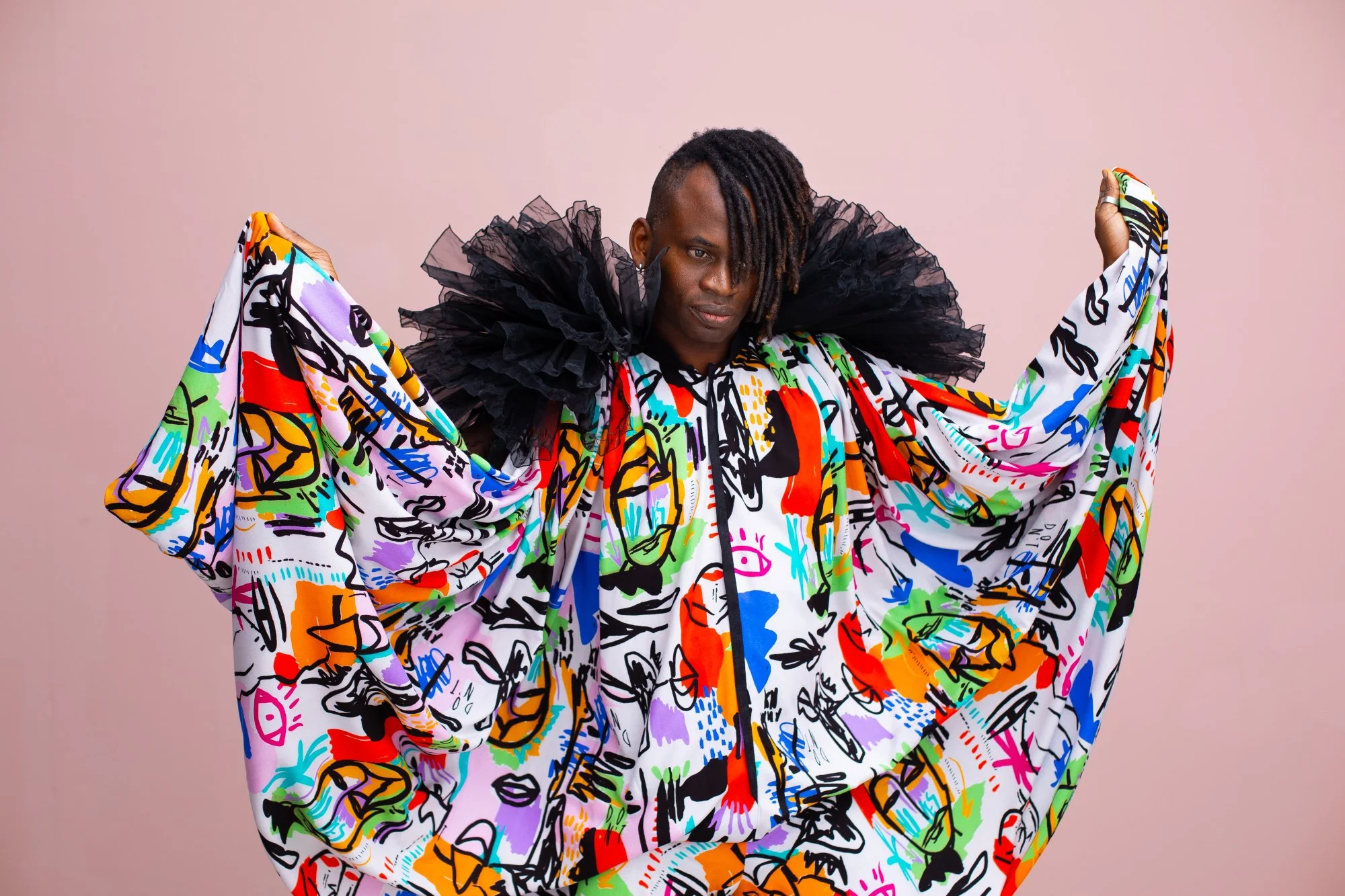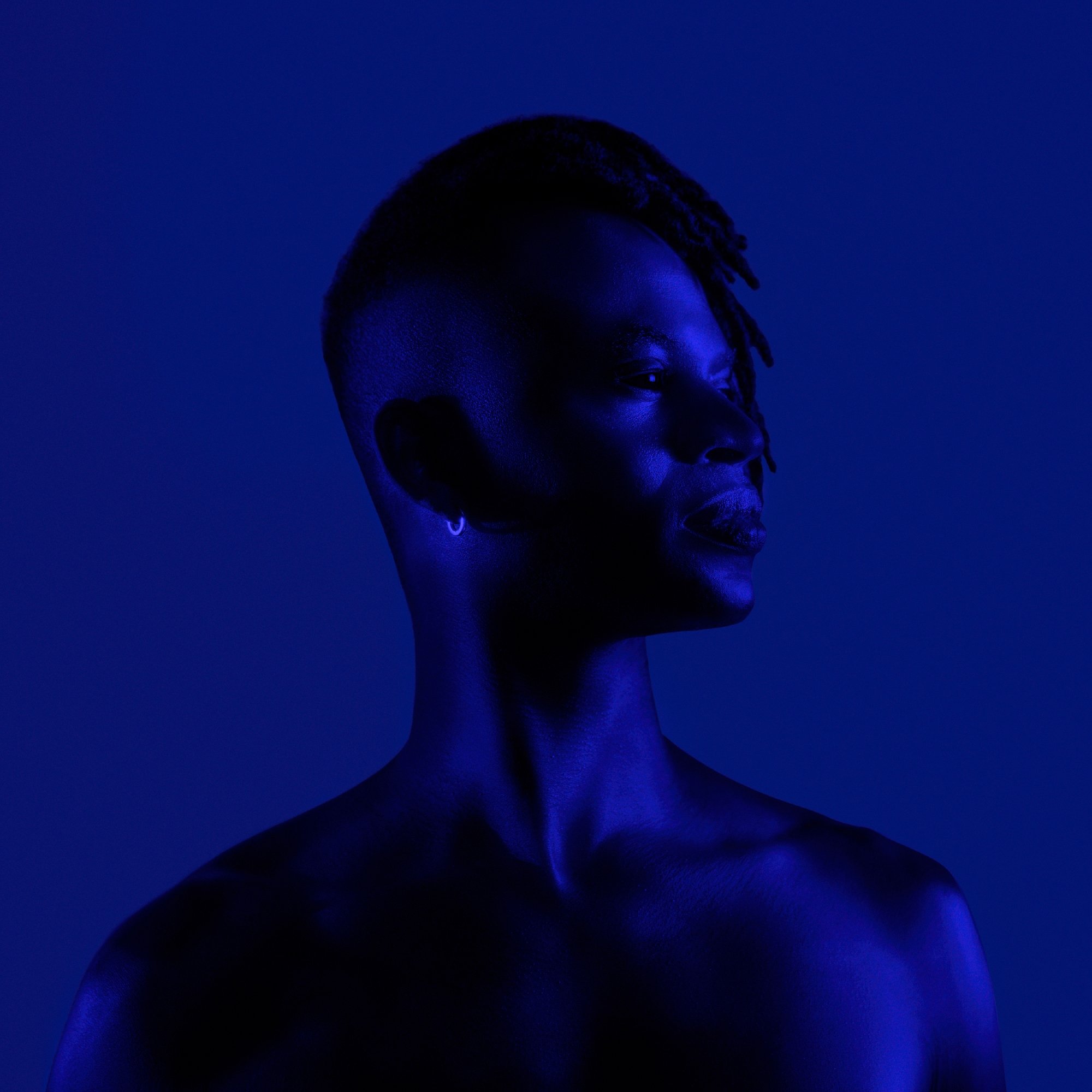The artist discusses the minimal sounds and Afrofuturist visions driving his latest album
Wayne Snow’s latest album ‘Figurine’ is an exploration of the seething emotions that make up our human experience, piecing together fragmented narratives surrounding identity and connectivity in a digital world. The Berlin-based Nigerian artist, real name Kesiena Ukochovbara, transcends style and genre on this release, combining ultra-slick electronic patterns with the rawness of live instrumentation all rooted in jazz, future soul and traces of Nigeria’s golden era of psychedelic rock. Showcasing his song-writing abilities, his lyrics are direct yet philosophical, leaving room for the listener to reach their own conclusions around themes of love and belonging.
Snow has risen to be an important voice in the nu jazz community since his Max Graef-produced EPs ‘Red Runner’ in 2014 and ‘Rosie’ in 2015 followed by his debut LP ‘Freedom TV’. Categorised by their eccentric sonics paired with Snow’s lighter-than-air falsetto and soulful vocal phrases, these earlier projects were about the dancefloor. “I was thinking about how I could make people just dance around to club music of my own doing and my own making,” he tells me.
Snow describes himself as “constantly in the making” with music being ubiquitous in his upbringing in Nigeria. “There was always music around us, in church, on the streets - wherever there’s life, there’s music,” he recalls. Since then, there have been various moments in his life when he felt music was his ultimate calling, describing this sensation as a “heavy feeling of love”. One such moment came when he was watching archive footage of Woodstock and couldn’t help but “picture myself vibing with the people on stage”. He moved to France to study musicology but became disillusioned by the euro-centric education he received. “I stopped going to classes and decided to just do stuff by myself. It was a slow process learning how to write songs and sing.”
Once he relocated to Berlin in 2013, he found his direction, along the way accumulating an abundance of influences which have all played a role in his aesthetic universe. These include the jazz luminaries Charlie Parker and Miles Davis, Nigerian legends Fela Kuti and King Sunny Ade, poets and writers Nicoli Gogal, Ben Okri, Stéphane Mallarmé and Russian painter Wassily Kandinsky. “It's not only sound that I rely on as something that builds my musical realm. If something brings a new insight to me, I will always try to put into sound or image.”
These wide horizons have allowed Snow to shape-shift through different landscapes and after four years of exploration, ‘Figurine’ is the clear representation of a liberated artist. Co-produced by himself, Crayon, Nu Guinea and Brandt Brauer Frick, the album is a peaceful and sensual voyage through a multiverse of futuristic yet minimal compositions. We move from ‘FOM’ which breaks out into an elaborate guitar solo, to poetic moments on ‘Relativity’ and the funk-ridden ‘Magnetic’ featuring guitar virtuoso Oscar Jerome. There is also the intentional use of spaced-out silence, placing Snow’s warm vocals at the centre of our attention.
“Africa has always been a land of the future. We are constantly ahead of everything and shifting forms”
Avant-garde beatmaker Flying Lotus was one reference point for the project due to his boundless take on soul music which Snow describes as “pushing the sound as far as you can”. The aim was to make the instrumentation sound as raw and natural as possible. “When I was in the early production stage, we would put as much sound and as we wanted in order to express the ideas as they came and then we slowly started taking things out to making the sound as simple as possible.” Another reference was Gustav Mahler’s soundtrack to the 1971 film ‘Death At Venice’. “It’s a very beautiful piece. You hear the progression and can picture everything right in front of you. It's throwing you in many different directions but it’s simple and pure.”
Snow collaborated with South African filmmaker and photographer Travys Owen to add another dimension to the ideas explored in ‘Figurine’. The video for ‘Nina’ is an explosion of colour and movement where two figures are captured losing themselves to dance while ‘Seventy’ is all about honouring the beauty of Snow’s homeland. A masked-figure from outer space journeys through a vast desert terrain adorned by the burnt orange sunset (in fact Tankwa Karoo National Park near Cape Town). The continent guides his take on Afrofuturism because of its ever-changing and influential creative landscape. “Africa has always been a land of the future. We are constantly ahead of everything, constantly shifting forms and moving forward. I’m reminding people of that.”
Now that ‘Figurine’ is out into the world, Snow’s mind is already set on what he can create next and on the other manifestations of human identity he can explore. His is music for a future where we can collectively move towards pursuing self-understanding above all else. In a bittersweet tone he closes our conversation by telling me, “There’s a term called ‘momentum mori’ that I’ve always applied to my work. It's like, no matter how happy I am, I always have this impression of the end, that this joy will stop. That idea filtered into my process with ‘Figurine’ and I brought it up with my collaborators so that they understood that it’s not just about the sound, it’s about the many layers of being a human.”
‘Figurine’ is out now on Roche Musique. Discover it here.





